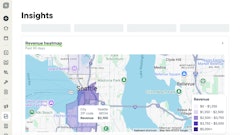
In the new year, businesses start engaging in strategic planning, setting goals and envisioning growth opportunities. Amid these aspirations lies a fundamental pillar that underpins success: a comprehensive understanding of their numbers. Whether you’re a startup, a small business or a corporate giant, the significance of “knowing your numbers” cannot be overstated. It’s not merely about financial figures; it’s about leveraging data and insights to make informed decisions and drive sustainable growth.
Financial health and stability
Understanding financial metrics is the bedrock of any successful business. Profit and loss statements, cash flow projections, balance sheets and key performance indicators (KPIs) provide a snapshot of the financial health of a business. Evaluating these numbers empowers businesses to identify trends, forecast effectively and make strategic adjustments to ensure stability and growth. Profit first is a cash flow business management strategy that helps you achieve greater profits and do more with your business; it has literally turned my business around with making profit a habit, not just and event.
Decision-making and strategy
Informed decision-making relies heavily on accurate data analysis. Knowing your numbers enables businesses to assess the performance of different departments, products or services. Armed with this information, leaders can strategize effectively, allocating resources where they’re most needed, identifying areas for improvement and capitalizing on opportunities that align with the company’s objectives.
Goal setting and measurement
Setting achievable and measurable goals is essential for progress. Businesses that know their numbers can establish realistic targets based on historical data and market trends. Moreover, these figures act as benchmarks for progress, allowing companies to track their performance, celebrate successes and recalibrate strategies if goals are not being met.
Operational efficiency and cost control
Understanding operational costs, margins and efficiency metrics helps in identifying areas where savings can be made without compromising quality. By analyzing expenses and revenue streams, businesses can optimize processes, negotiate better deals with suppliers and streamline operations to enhance overall efficiency.
Investor and stakeholder confidence
For businesses seeking investments or partnerships, a clear understanding of their financials instills confidence in potential investors or stakeholders. Accurate and transparent reporting demonstrates credibility and stability, positioning the business as a reliable and attractive opportunity for collaboration or investment.
Compliance and risk mitigation
Compliance with regulatory standards and risk management are crucial aspects of any business. Knowing your numbers includes staying updated on tax liabilities, legal requirements and industry-specific regulations. This knowledge enables businesses to mitigate risks and avoid potential penalties or legal issues.
Technology and data-driven insights
Advancements in technology have revolutionized data analytics, providing businesses with powerful tools to glean actionable insights. Utilizing analytics software and platforms helps in extracting meaningful data, enabling businesses to make informed decisions based on real-time information.

















![Gravely Pro Turn Mach One My23 Dsc03139 Edit 1200x800 5b2df79[1]](https://img.greenindustrypros.com/mindful/acbm/workspaces/default/uploads/2025/10/gravely-pro-turn-mach-one-my23-dsc03139-edit-1200x800-5b2df791.BucBnDoN22.jpg?ar=16%3A9&auto=format%2Ccompress&fit=crop&h=135&q=70&w=240)


